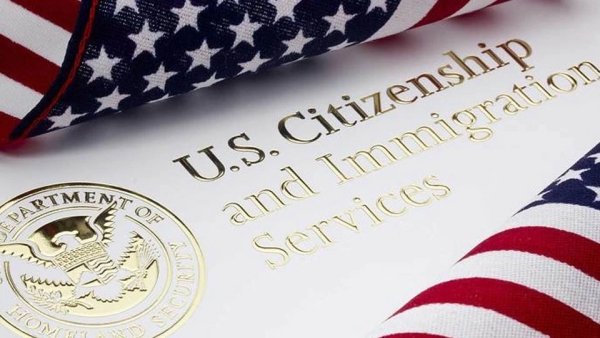THE United States granted citizenship to 34,289 Nigerians between 2020 and 2022, the latest Naturalisations Annual Flow Report from the US Department of Homeland Security shows.
Compiled by the Office of Homeland Security Statistics, the report pulls its numbers from Form N-400 — the application form every would-be American files.
The data is also drawn from the electronic case files that US Citizenship and Immigration Services use to track each applicant from fingerprinting to the oath ceremony.
Figures obtained by this newspaper indicated that 8,930 Nigerians became naturalised citizens between October 2019 and September 2020.
That period included an 11-week COVID-19 shutdown — March 18 – June 4, 2020 – that temporarily halted all oath ceremonies.
The following year, 10,921 Nigerians obtained citizenship as USCIS worked through its pandemic backlog.
In 2022, 14,438 Nigerians took the oath—an all-time high for the country and a 32 per cent jump from the previous year.
The three years add up to 34,289 new Nigerian-American citizens, making up around three per cent of all 248,553 Africans who naturalised in that period.
When the OHSS grouped naturalisations by country of birth, only two African nations—Nigeria and the Democratic Republic of Congo—were in the global top-30 list.
More Nigerians were naturalised within that period, followed by the DRC, whose naturalisations almost doubled in 2022 to about 6,000.
Other African applicants from Ethiopia to Ghana, Kenya and beyond are bundled into the “All other countries” category.
Overall, naturalisations of Africans jumped 40 per cent between 2021 and 2022, the highest increase per region recorded.
Across all regions, Mexico accounted for 326,237 naturalisations for the three years.
India followed with 171,114 naturalisations, steadily rising from 48,111, 57,043 and 65,960 for 2020, 2021 and 2022, respectively.
The Philippines supplied 135,313 new Americans, Cuba (126,203), the Dominican Republic (81,303), Vietnam (80,177), the People’s Republic of China (82,376), Jamaica (57,145), El Salvador (52,399), and Colombia (48,396).
Together, the 10 countries of birth accounted for almost half of all 2.4 million naturalisations completed during the three-year window.
The USCIS notes that application volumes and approvals do not always move in lockstep. Some petitions are denied, while others are decided in a later fiscal year.
The United States’ naturalisation of foreign nationals is based on its Immigration and Nationality Act of 1952.
USCIS, an agency within the Department of Homeland Security, screens applicants, runs FBI name checks and fingerprint searches, reviews five years (three if married to a U.S. citizen) of continuous residence, and tests English literacy and civics knowledge.







